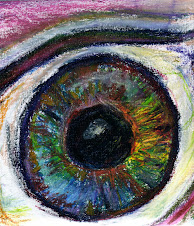- Education generally does not consider that other than for low vision issues, vision could be the root of a child's difficulty in learning to read. It isn't profiled in the graduate school reading courses. (I would love to offer such a course at the graduate school level here in St. Louis- I even have a course proposal written!) Vision therapy and binocular vision evaluations are not typically included in an IEP (of course not because then the budget-strapped public school districts might have to pay for the services). The school nurse's vision screening doesn't usually deal with anything other than acuity and obvious ocular health issues. So when a child has received all the reading interventions at school, gets read to at home regularly, is otherwise intelligent, articulate, and healthy, but still cannot read on grade level, he gets labeled learning disabled in reading, given a diagnosis of dyslexia, or placed in still more sedentary tutorials. If these children were to be sent to a developmental optometrist for a binocular vision evaluation and, if indicated, a developmental evaluation of their visual-perceptual skills, and again if indicated, enrolled in a program of in-office vision therapy, many of them would gain the skills they need within 12 to 48 weeks.
- Home schooling parents frequently choose to home school because their struggling readers are not well served in a traditional school setting. Then, in their frustrated search for interventions, they end up spending too much money without achieving the result they hoped for. Since vision therapy providers are hard to find, are usually very expensive, and their services tend not to be covered by health or vision insurance, these parents suspect that the prescribing doctor may just be another person looking to separate them from their money without bringing any real change.
- Optometry and ophthalmology are not always friends. Optometrists are the eye doctors who generally provide vision therapy services as well as binocular vision evaluations. Ophthalmologists are the medical doctors who specialize in the treatment of eyes. They also do eye surgeries. While there is more than 40 years of documented optometric research to prove that vision therapy works, there is limited awareness about it partly because of the disconnect between optometry and ophthalmology. Since 2008, though, both professions agree that in-office vision therapy is effective to treat convergence insufficiencies. This is real progress. Ophthalmology also agrees that vision therapy is helpful in the treatment of amblyopia.
One reason that I started blogging about these issues (other than as a marketing strategy for the books, of course) is that I know that a lot of children who don't like to read and who are not "living up to their potential in school" change after their unaddressed learning-related visual challenges get fixed. I see it every day when I work in the vision therapy context. I'd love to be considered a resource for parents and teachers around the issues of vision and learning so please, post your questions as blog comments or on the wall of the FaceBook page. Or email me at asklesley@teamlesley.com. I'll answer what I know- probably I'll suggest you schedule an appointment with a developmental optometrist too.
For optometrists, the Eye Can Too! Read series of e-books is a great resource for your home-schooling families. The books work as stand-alone solutions or as resources for home therapy in connection with a program of in-office vision therapy for saccadic deficits, laterality & directionality delays, and visual perceptual delays. Let me know if you are interested in receiving preview copies or in having them available on CD for sale at your office.





No comments:
Post a Comment